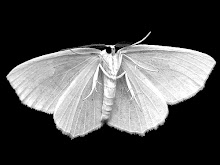 Needless to say, Heitor Villa-Lobos is one of the most internationally acclaimed Brazilian composers of all times: his entry in wikipedia.com shows he was described as "the single most significant creative figure in 20th-century Brazilian art music". I would agree wholeheartedly. Every time I hear his name, or listen to one of his compositions, I remember a sunny day in my home-town Rio de Janeiro, when I was in my early twenties, walking down a narrow street (Rua Sorocaba) in the Botafogo neighborhood, when I stumbled on the doorsteps of the Villa-Lobos Museum. Although that visit was completely unintentional (I was actually surprised to find out his museum was right there and then), my memories of that glorious day, other than that it was sunny and I was very happy, are still alive today mostly because of what I felt while walking uncommitted through the rooms of the old mansion in Botafogo.
Needless to say, Heitor Villa-Lobos is one of the most internationally acclaimed Brazilian composers of all times: his entry in wikipedia.com shows he was described as "the single most significant creative figure in 20th-century Brazilian art music". I would agree wholeheartedly. Every time I hear his name, or listen to one of his compositions, I remember a sunny day in my home-town Rio de Janeiro, when I was in my early twenties, walking down a narrow street (Rua Sorocaba) in the Botafogo neighborhood, when I stumbled on the doorsteps of the Villa-Lobos Museum. Although that visit was completely unintentional (I was actually surprised to find out his museum was right there and then), my memories of that glorious day, other than that it was sunny and I was very happy, are still alive today mostly because of what I felt while walking uncommitted through the rooms of the old mansion in Botafogo.Villa-Lobos left many manuscripts of his interpretations of classics of the popular and classical repertoires from all over the world, and also of his own compositions, with many notes to performers for correct interpretation, and also dedications to his beloved ones. His writing and words caught my attention so that I spent a few hours reading carefully through whatever I could find on display, and even before seeing his photos and reading his biographies, I was able to see through his clear and firm writing that this was a man of strength, charisma and leadership.
 Walking around the room in the Rua Sorocaba mansion, I also captured his intense love affair to all things Brazilian. His personal collection of indigenous and popular artifacts, mostly anything indigenous or popular that could produce music, was breathtaking. About that passion, Heitor himself used to say: "Yes, I am Brazilian and a Brazilian with capital B. In my song I allow the rivers and seas of this great Brazil to sing. I do not put a muzzle on the tropical exuberance of our forests and our skies, I instinctively transpose them to everything I write."
Walking around the room in the Rua Sorocaba mansion, I also captured his intense love affair to all things Brazilian. His personal collection of indigenous and popular artifacts, mostly anything indigenous or popular that could produce music, was breathtaking. About that passion, Heitor himself used to say: "Yes, I am Brazilian and a Brazilian with capital B. In my song I allow the rivers and seas of this great Brazil to sing. I do not put a muzzle on the tropical exuberance of our forests and our skies, I instinctively transpose them to everything I write."Long live Heitor Villa-Lobos' work.
Starting points to know more about the man and his music:
- Heitor Villa-Lobos Museum,
- A recent documentary about his life (in Portuguese),
- A beautiful interpretation of Estudo no. 1 with 7-string guitarist Raphael Rabello,
- Heitor Villa-Lobos Canadian site.


No comments:
Post a Comment